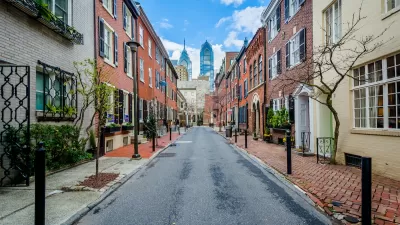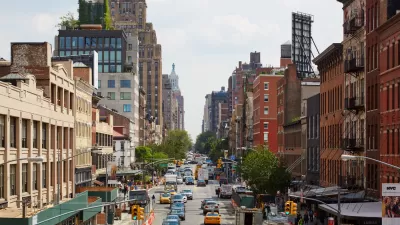Dawanna Williams of Dabar Development Partners discusses the narrower options for mid-sized developers in the current financial climate.
"I've talked with many developers over the past year, and most say the crisis has caused them to alter development plans. Repeatedly, I hear a couple of typical scenarios. If a developer was lucky enough not to have purchased a market-rate property and is now not obliged to close under a "hard" contract, then the developer will refrain from purchasing. If the developer is already holding property for development, then putting a project together in today's market becomes akin to doing a New York Times crossword puzzle, and the day of the week depends on your creativity as a developer when meeting more complex challenges. For a mid-size developer, that means exercising the right to request more money from partners and investors to get the deal done, as costs and capital requirements increased dramatically in 2008 alone. The additional capital is applied to a range of budgetary line items, which are amplified in a housing slump, including increased costs for construction, increased interest payments, changed equity requirements, and filling gaps between the sales and bank release prices.
To survive, there are three choices for mid-size developers: bankruptcy, a moratorium on new projects, or partnerships."
FULL STORY: Comment: Dawanna Williams

Planetizen Federal Action Tracker
A weekly monitor of how Trump’s orders and actions are impacting planners and planning in America.

Congressman Proposes Bill to Rename DC Metro “Trump Train”
The Make Autorail Great Again Act would withhold federal funding to the system until the Washington Metropolitan Area Transit Authority (WMATA), rebrands as the Washington Metropolitan Authority for Greater Access (WMAGA).

The Simple Legislative Tool Transforming Vacant Downtowns
In California, Michigan and Georgia, an easy win is bringing dollars — and delight — back to city centers.

The States Losing Rural Delivery Rooms at an Alarming Pace
In some states, as few as 9% of rural hospitals still deliver babies. As a result, rising pre-term births, no adequate pre-term care and harrowing close calls are a growing reality.

The Small South Asian Republic Going all in on EVs
Thanks to one simple policy change less than five years ago, 65% of new cars in this Himalayan country are now electric.

DC Backpedals on Bike Lane Protection, Swaps Barriers for Paint
Citing aesthetic concerns, the city is removing the concrete barriers and flexposts that once separated Arizona Avenue cyclists from motor vehicles.
Urban Design for Planners 1: Software Tools
This six-course series explores essential urban design concepts using open source software and equips planners with the tools they need to participate fully in the urban design process.
Planning for Universal Design
Learn the tools for implementing Universal Design in planning regulations.
Smith Gee Studio
City of Charlotte
City of Camden Redevelopment Agency
City of Astoria
Transportation Research & Education Center (TREC) at Portland State University
US High Speed Rail Association
City of Camden Redevelopment Agency
Municipality of Princeton (NJ)




























